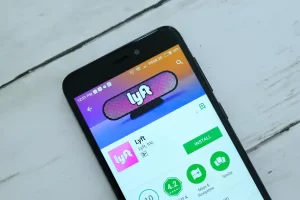The Daily Journal’s James Twomey reported Friday that attorneys representing a plaintiff who lost the first bellwether trial against Uber over claims of sexual assault by one of its drivers are criticizing the San Francisco judge who presided over the case. They say he improperly allowed references to their client’s past sexual encounters into evidence, violating California’s strengthened Rape Shield Law [PDF link] which restricts the admissibility of such material in civil proceedings.
On Sept. 30, a jury found that Uber was negligent but determined that its negligence was not a substantial factor in the alleged harm caused to the plaintiff. A plaintiff’s attorney said they were planning to appeal the verdict but noted there were “a number of things to consider first.”
“The jury was never going to be able to say yes to that question of a substantial factor because of evidence that the judge allowed in,” the plaintiff’s attorney said in a phone call Thursday.
Superior Court Judge Ethan P. Schulman denied several motions for mistrial brought by the plaintiff’s attorneys. One motion, filed on the first day of trial, claimed that Uber’s attorney had breached a pretrial order and California’s rape shield statute, which limited the admissibility of the plaintiff’s other sexual encounters, including assaults.
On the opening day of the trial, Uber’s attorney attempted to diminish the plaintiff’s ability to accurately recollect the details of what happened between her and the driver, downplayed the number of assault encounters reported by passengers, and rejected the plaintiff’s counsel’s use of the term “sexual violence” in opening statements.
A plaintiff’s attorney commented that future bellwether trials may be able to “bridge the gap” between Uber’s alleged negligence and whether that negligence was a substantial factor in passengers’ harm.
“The jury did find that Uber was negligent, and I think that’s significant because the substantial factor part is the hurdle that the rest of the plaintiffs and the rest of these cases are going to have to get over,” the attorney said in a phone call.
“If there’s enough evidence for the negligence piece, then it’s a question of figuring out what evidence should be presented to get over the second hurdle of the causal element of the substantial factor,” the attorney said.
“I think the evidence is out there to bridge that gap between not only Uber being negligent, but that their negligence being a substantial factor in the end result,” the attorney added.
The attorney accused Judge Schulman of almost “opening the door” to her client’s sexual history and attempting to “fix what he thought was an unfair statute, the law in California.”
“The defense is not allowed to introduce the plaintiff’s sexual history in a sexual assault trial to either reduce the plaintiff’s damages or argue consent,” the attorney said, “or to impeach the plaintiff’s credibility on either of those issues. And the judge, unfortunately, at the very beginning of the trial made a ruling that allowed the defense to introduce the plaintiff’s sexual history, but not call it sexual history, [and instead] call it a ‘traumatic incident.’”
The attorney added that the judge “said that he found it concerning that this type of evidence couldn’t be considered in determining the plaintiff’s damages. So he created a fiction where events were labeled as ‘traumatic events’ or ‘traumatic incidents’ without further explanation.”
The attorneys alleged that Uber’s counsel blamed the plaintiff for the assault, ascribing causation of her damages to her past sexual encounters, subjected her to a 12-hour deposition, and subpoenaed her parents to come to trial, but did not call them. They described Uber’s approach as “heavy-handed intimidation of people, of women who had been victimized by drivers.”
Are You A Survivor Of Uber Driver Sexual Assault?
It is not too late to come forward. Survivors are still filing new Uber driver sexual assault claims in both state and federal courts. If you experienced an assault involving an Uber driver, you may still have legal rights and options. Learn more about the ongoing litigation at our Uber Sexual Assault Lawsuits Guide.




